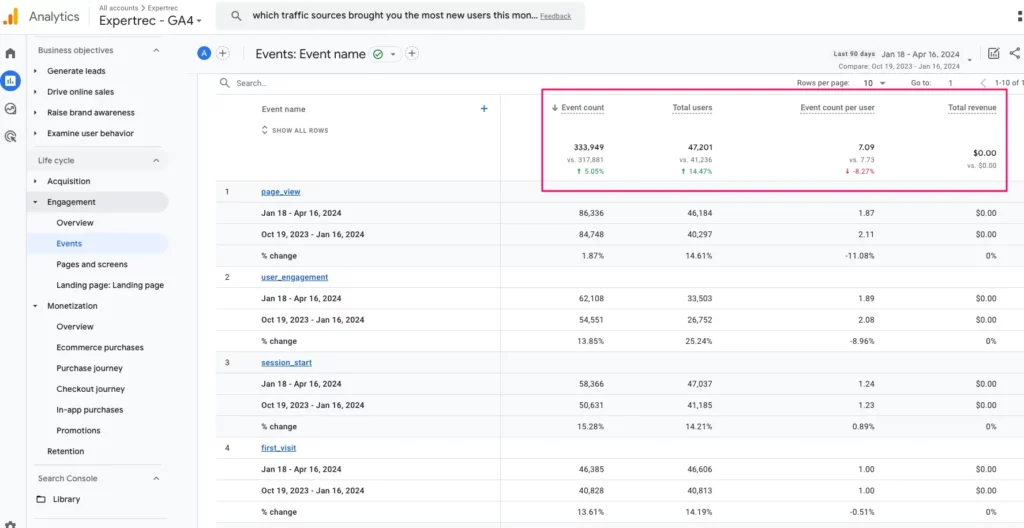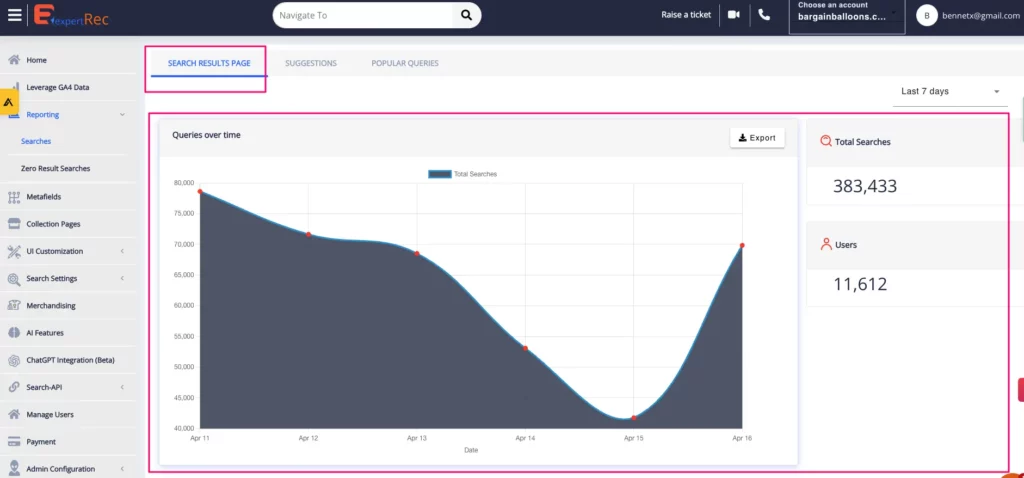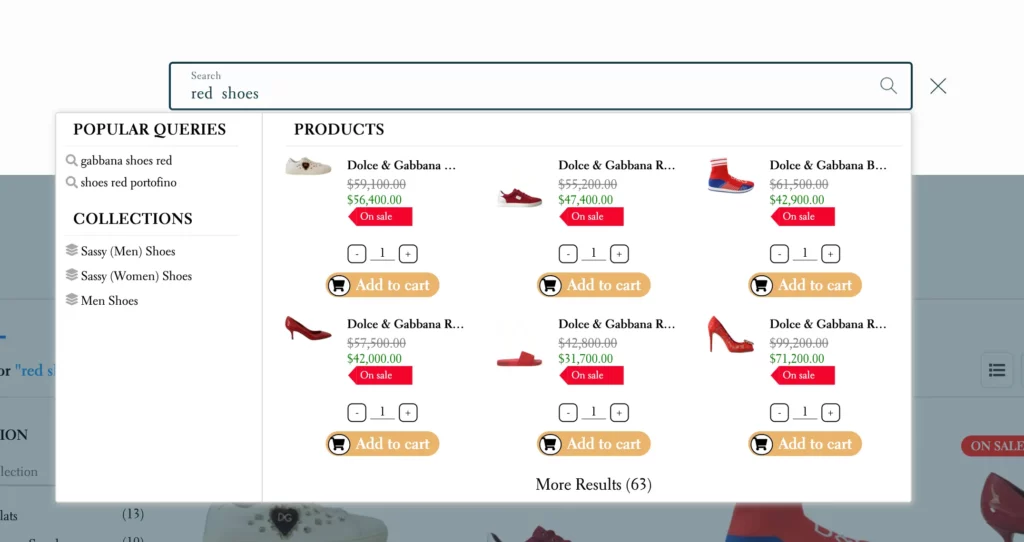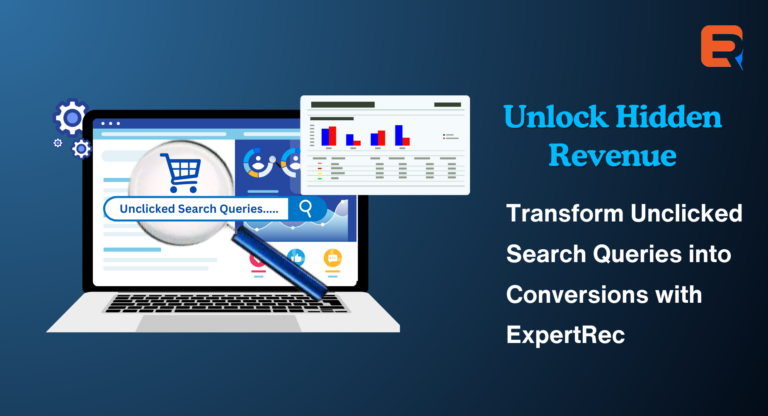Google Analytics (GA) has become an essential free tool for website owners and marketers to understand their website traffic and user behaviour. Launched in 2005, GA allows you to track various metrics like page views, bounce rates, referrals, and more.
At its core, GA works by tracking website visitors with cookies and recording their actions on your site. This generates a wealth of data that GA processes into reports and dashboards accessible through your GA account.
But how does Google make money from such a powerful free product? The short answer is – by collecting and leveraging your website’s data. GA provides numerous benefits to Google, allowing it to improve its products and services in various ways.
In this article, we’ll explore how Google benefits from GA data and how you can use GA to your advantage, while also overcoming some of its limitations.
Data Collection
Google Analytics (GA) collects and tracks a tremendous amount of data from websites that use its services. This includes information such as:
- Page visits – GA records every page visit on a site along with the URL, page title, and time spent on the page. This provides insights into content engagement and site navigation patterns.

- Traffic sources – GA tracks where visitors originate from, whether it be search engines, referring sites, social media, or direct entry. The source and medium are recorded.

- Keywords – For visits from search engines, GA records the keywords and search queries that led visitors to the site. This reveals the search terms driving traffic.
- Location – The geographic location of visitors is logged based on IP address. This shows the countries, cities, and regions website traffic is coming from.

- Device data – GA collects information on the devices used to access the site, such as desktop vs mobile, operating systems, browsers, screen resolutions, etc.
- Interactions – Clicks, downloads, signups, purchases, and other interactions are all tracked by GA. This shows how users engage with site content and conversion points.

The breadth of data collected by Google Analytics is extremely valuable for Google. It provides insights into search behaviour, consumer interests, digital marketing effectiveness, trends, and more. Google can leverage this data to improve its products and services, including the Google Search engine, Google Ads, Google Maps, and Google Commerce. The data helps Google understand user intent and needs so it can deliver more relevant results and experiences across its ecosystem of apps and services. While providing analytics services to website owners, Google also gains strategic competitive insights from the mass of aggregated user data.
Improving Google Search
Google Analytics provides Google with an immense amount of user data that is invaluable for improving search quality and relevancy. As users interact with websites that implement Google Analytics, Google gains insights into real searcher behaviour, interests, and needs.
This data enables Google to understand what users are searching for, how they are phrasing their queries, and what they engage within search results. By aggregating search analytics data across millions of websites, Google can identify patterns and trends in search behaviour.
Google leverages this data to improve its search algorithms and machine learning models. Analytics insights help Google better interpret search intent and the semantic meaning behind queries. This allows Google to connect searchers with more relevant results by understanding the underlying needs and goals behind search queries.
User behaviour data also powers Google’s ability to understand the context and deliver personalized results tailored to each user. The aggregated analytics data helps train Google’s deep learning artificial intelligence that drives advances in search quality. In essence, every website that uses Google Analytics is contributing data that enhances Google’s search capabilities.
So while websites get valuable insights from implementing Google Analytics, Google derives tremendous value from all that user data to continuously refine and improve search performance. Google’s access to analytics data provides a competitive advantage in developing smarter, context-aware search algorithms.
Targeted Advertising
Google Analytics provides Google with valuable data on user interests and behaviour. By tracking how users navigate and interact with websites, Google can gain insusers’each user’s preferences and intent.
With access to this data, Google can target advertising and personalized experiences much more effectively. For example, if Google sees a user frequently visiting sites related to mountain biking, it can serve ads for mountain bikes and related gear. Or if a user is searching for specific products or services, Google can display relevant ads higher up.
The depth of data available allows Google to go beyond basic targeting by demographics or location. The ads shown to each user can be highly customized based on their individual interests and needs. This results in a much higher value for advertisers, as they can reach audiences more likely to engage. Users also benefit from seeing ads for products and services they may actually want.
Overall, the user data collected through Google Analytics is crucial for enabling the targeted ad experiences and personalization that Google is known for. While users give up some privacy, the tradeoff is ads and recommendations better aligned with their preferences. Google certainly gains financially from all the insights it gathers across the web.
How Google Analytics Informs Google’s Product Development
Google Analytics provides Google with incredibly valuable data that it uses to improve its products and services. By tracking the usage of websites that implement Google Analytics, Google can identify trends, pain points, and opportunities to better serve users.
Some examples of how Google might use Analytics data to guide product development decisions:
- Identifying which Google services are most popular can help Google prioritize development resources. For example, high usage of Google Maps on business websites might motivate enhancements to Maps features for businesses.
- Demographic data from Analytics can reveal which user segments heavily use certain products. That allows Google to tailor products by age group, geography, language, etc.
- Analytics might reveal products with high abandonment rates. Google can then analyze usage data to understand pain points and improve the user experience. For example, if many users abandon the sign-up flow for new Gmail accounts, Google can redesign that process.
- Seeing traffic referral patterns can suggest opportunities for integration between Google products. If Google notices lots of searches leading to YouTube videos, it might add video previews in search results.
- Usage trends over time give Google insight into rising or declining demand for products. This may shift priorities and investments towards high-growth products.
- Popular keywords entered into site search bars can inspire new features or services. For example, if Google notices people searching for “food delivery” on Google Maps, it may expand Maps’ capabilities in that area.
So in summary, Google Analytics provides tremendous value to Google by highlighting opportunities to better serve users and build products people want. The data ultimately helps Google maintain its competitive advantage.
Competitive Advantage
Google Analytics provides Google with an immense competitive advantage over other technology companies and search engines. The data collected through Google Analytics gives Google unparalleled insights into search behaviour, website usage, demographics, interests, and more. This data is a critical asset that Google’s competitors simply do not have access to.
By having exclusive access to the search and site usage data of millions of websites, Google can understand user intent and behaviour better than anyone else. They can see exactly what people are searching for, how they interact with sites, what convinces them to convert or purchase, and so on. This allows Google to continually improve its search algorithm to deliver more relevant results.
In addition, Google can leverage Analytics data to optimize its own products and services. For example, understanding what people search for helps Google improve autocomplete suggestions and featured snippets. Seeing how people navigate sites can lead to better page layouts and interfaces on Google’s own properties.
The data also enables Google to serve more targeted, higher-converting ads through its advertising platforms. Advertisers benefit from Google’s superior customer insights, reinforcing Google’s dominance in online advertising.
Ultimately, Google Analytics data gives Google a significant competitive advantage that reinforces its position as the market leader in search and digital advertising. The insights it provides are invaluable, and not something other tech companies can easily replicate. This exclusive access to customer data across millions of sites is a key factor in Google’s continued success and growth.
Using GA to Your Advantage
Google Analytics provides valuable data that site owners can leverage to optimize their websites and improve the user experience. Here are some key ways to utilize GA insights:
Enhance On-Site Search
Analyze search queries to identify common misspellings, synonyms, and phrases users are searching for that return no results. Use this to expand your site search capabilities and help users find what they need.
Improve Recommendations
Leverage user behaviour data to understand what content users commonly view together. Use this to implement smart product/content recommendations based on correlations in the data.
Identify Site Speed Issues
Monitor page load times and analyze user flows to identify pages that are slow to load. Prioritize optimizing the speed of high-traffic or high-exit rate pages. Faster sites improve user experience and conversions.
Personalize Site Content
Create user segments in GA to analyze behaviour differences across groups. Use this to tailor site content and messaging to specific audiences for a more personalized experience.
Fix High Exit Pages
Identify pages with high exit rates and optimize content, navigation, and page design to reduce exits. This improves user retention.
Track Goal Conversions
Set up goals and conversion tracking to measure site performance. Analyze goal funnel data to optimize pages and remove friction leading up to conversions.
Overall, GA provides invaluable insights to help site owners understand their users and continuously experiment and optimize the site experience. Leveraging the data is key for driving growth.
Overcoming GA Limitations with Expertrec
Google Analytics provides a wealth of data about your website and users, but it has some key limitations. The main issue is that GA gives you high-level analytics, but doesn’t provide detailed insights into user behavior and intent.
This is where the Expertrec plugin comes in. Expertrec enhances your internal site search and analytics in the following ways:
- Provides search analytics – See every search query made on your site, the results users clicked, and refinements. This allows you to optimize search by fixing spelling mistakes, adding synonyms, and improving results.

- Recommendations engine – expertrec automatically surfaces relevant products, pages and content to searchers. For example, if someone searches “red shoes”, it can show recommendations for related products.

- Synonym matching – Expertrec matches misspelt or partial words to return relevant results. So a search for “tenis shoes” would also show results for “tennis shoes”.

- Click analytics – View each search result clicked and use this to improve page content and relevance.
- Conversion tracking – See which search queries led to conversions like purchases or email signups. Identify high-intent keywords.
![]()
Overall, Expertrec gives you granular data on-site search and navigation that complements the high-level statistics from GA. This allows for better optimization and personalization to improve user experience. By implementing Expertrec, you can gain more control and value from the data generated on your site.
Control Your Data
While Google Analytics provides value through data collection and insights, it’s important for website owners to be aware of the extent of data being gathered. GA collects information on users’ demographics, interests, behaviour and more. This data is used by Google to improve its products and services, target ads, and gain competitive intelligence.
As a website owner, it’s crucial to limit data collection to only what’s necessary for your goals. There are tools available to protect user privacy and control analytics access:
- Use GA’s built-in data anonymization features to mask IP addresses and other identifiable information. This preserves visitor privacy while still providing aggregate analytics.
- Leverage browser extensions like Ghostery to block trackers from collecting data without consent. These tools allow granular control over what analytics scripts are permitted.
- For more advanced users, hosting GA yourself instead of using the hosted version gives you full data ownership. You can then integrate GA with your own data warehouse instead of Google’s servers.
- ExpertRec is a search engine that can provide personalized recommendations and site searches without sending data to third parties. It enables advanced analytics while prioritizing privacy.
In summary, website owners should aim for an optimal balance between analytics value and data minimization. With the right privacy tools in place, you can still gain helpful insights from GA while controlling how Google uses your visitors’ data.
Conclusion
Google Analytics provides free and powerful website analytics to websites and apps, but it’s important to understand why this valuable service comes at no cost.
The main reason Google offers Analytics for free is that it provides tremendous value to Google itself. By collecting data on site usage, Google can improve its search algorithms, target advertising, develop new products, and maintain a competitive edge. While this data collection can make some uneasy, overall it enables Google to continuously enhance its services.
For those using Google Analytics, the benefits are clear. It supplies website owners with invaluable insights into visitor behaviour, traffic sources, conversions, and more. Users should be mindful of the data collection and set up filters to protect sensitive information. However, the rich analytics provided by GA present an opportunity for online businesses to significantly improve their sites.
With some adjustments to protect private data, website owners can leverage Google Analytics to better understand their visitors and optimize the user experience. Features like custom dashboards, intelligence alerts, and segmentation provide robust tools for analysis. Integrating GA with other sites and services further unlocks its potential.
While recognizing Google’s self-interest in offering the free platform, websites can judiciously take advantage of Google Analytics capabilities for their own benefit. With a discerning approach, sites large and small can access the analytics acumen of one of the world’s tech leaders at no cost. That’s an opportunity worth exploring for any site looking to take its performance to the next level.




